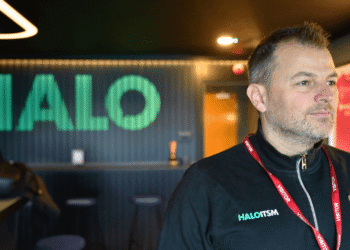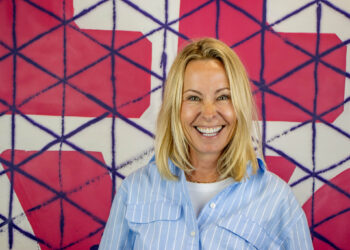Women in the tech channel shouldn’t be scared of “taking up more space”.
That’s the message of Softcat Recruitment Manager Elisha Kirkham, who is determined to use her platform to empower as many women as possible.
Kirkham has emerged as one of the channel’s most visible female role models, giving keynotes at women in tech events and appearing on podcasts such as Channel Chat.
“I would love to have seen more really strong, vocal women earlier in my career, talking about what they bring and where their value lies,” Kirkham said during a chat with IT Channel Oxygen (see video above for more).
“I think the misconception here is that you have to be this overtly confident, verging-on-arrogant, displaying-masculine-tendencies, woman in the boardroom.
“That’s not what I’m talking about.
“I’m talking about us taking up a bit more space, talking about our own achievements a bit more, and getting more comfortable with doing the uncomfortable stuff – which for a lot of women is validating yourself rather than waiting to be validated.”
Getting intentional
According to analysis carried out by IT Channel Oxygen, the average percentage of female staff among leading UK resellers and MSPs has risen from 26.1% to 28.8% since the government introduced mandatory pay gap reporting.
But these firms have made slower progress when it comes to the number of women in their top pay quartile (where the average has crept up from 17.3% to 18.3% over the same period).
Part of the issue is that women are raised to be “hyper aware” of how they are perceived, which “breeds fear” around how they put themselves forward, Kirkham said.
Kirkham urged women to bring more “intentionality” to their careers.
“It’s integral for us to support women earlier in their careers so they can understand the value of getting more intentional with how they create opportunities for themselves,” she explained.
“For me, it’s about how we, as managers and leaders, get more intentional with how we’re supporting women coming up through their careers. How do we make them feel way more confident and comfortable to take up more space to talk about themselves, to own their achievements, and to talk more openly about their strengths and where they excel.”
Kirkham has talked openly about her own story, including her struggles with post-natal depression following the birth of her son, Max.
“I’m a big believer in the fact that the most powerful thing we all have is our own story,” she said.
“Thankfully, I’m programmed to share.
“But that’s not the case for a lot of people, specifically women, and specifically within the workplace. And when we’re talking about challenges around post-natal mental health, or mental health in general, those topics can still feel quite taboo.
“Because I find it quite easy to [talk openly about challenging topics], I felt a responsibility to share my own experiences.
“I want to be known as somebody who’s really passionate about enabling other women, who isn’t scared to exhibit some of the behaviours that we as women from an early age are subconsciously taught aren’t palatable.
“If it’s going to help even one woman out there to feel validated, then in my mind, it’s worth it.”
Doug Woodburn is editor of IT Channel Oxygen















